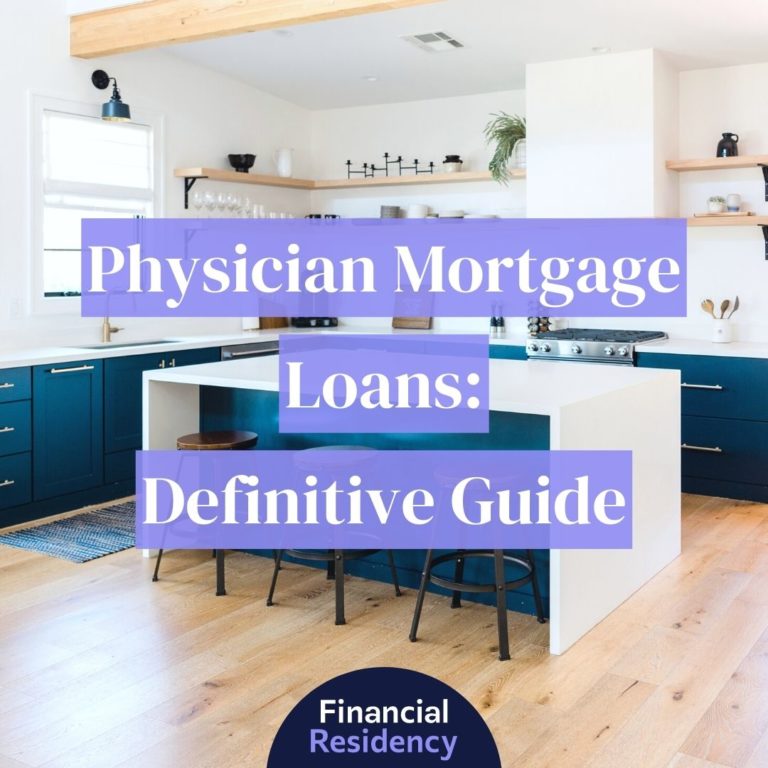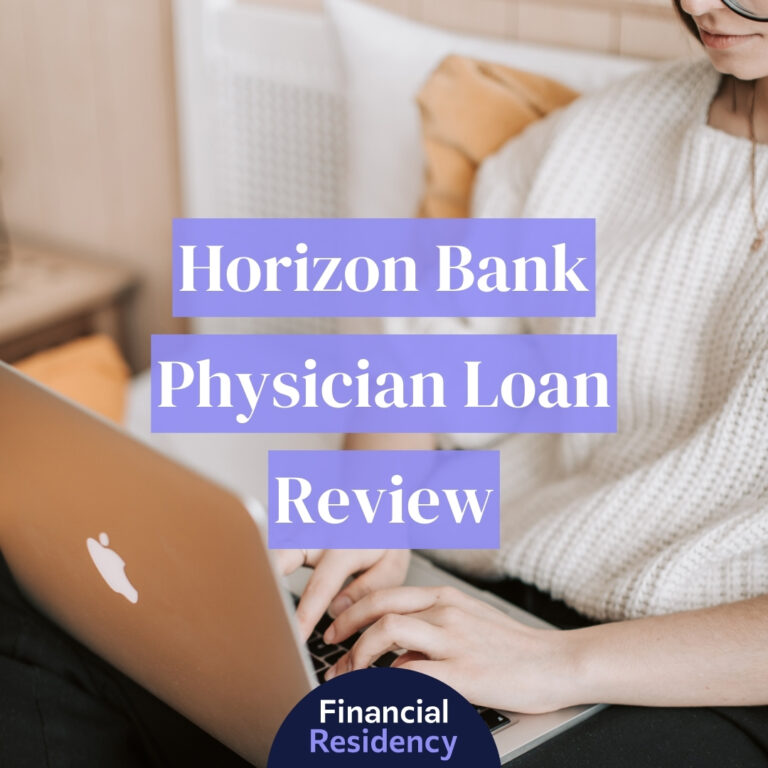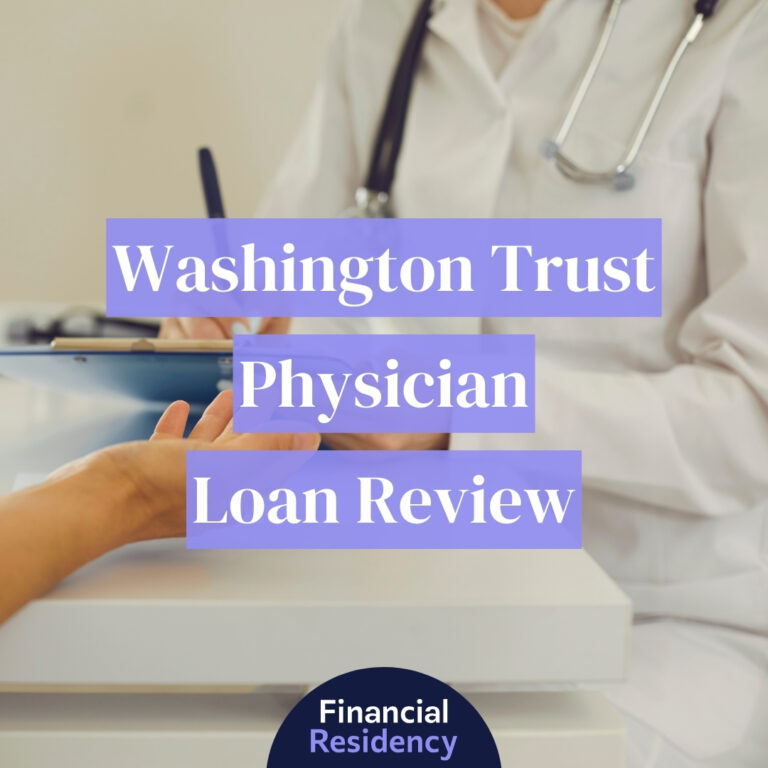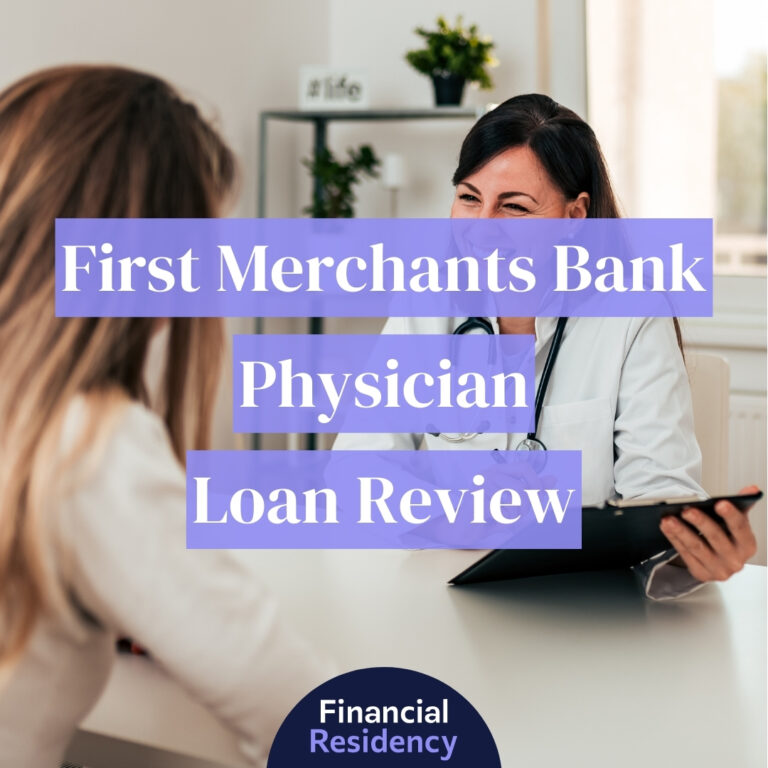If you’re thinking of purchasing a home in Wisconsin or refinancing an existing mortgage, and you are one of more than 18,500 physicians that call the Badger State home, a physician loan can help your housing dream become a reality.
Whether you’re choosing Wisconsin to be near your family or continue your career in medicine, you’ll join more than 5.8 million residents who call Wisconsin home.
Like most of the country, many areas of Wisconsin face a shortage of primary care physicians, dentists, and mental health professionals.
A physician loan can help you put down permanent roots in the most affected communities by closing the mortgage qualification gap by tailoring a loan program to the needs of highly-educated people with low savings and significant student loan debt.
If you’re ready to get started on the process of obtaining a physician mortgage loan in Wisconsin, then consulting with one of the below lenders can help you find the best physician mortgage loans in Wisconsin for your needs.
8 Best Wisconsin Physician Home Loan Lenders
Here are the top physician mortgage loan lenders in WI:
- BMO Bank
- Citizens Bank
- Evolve Bank & Trust
- First National Bank of Omaha
- Flagstar Bank
- Huntington Bank
- KeyBank
- US Bank
Discover The Best Lenders in Wisconsin Answer just a few questions about your career, where you're buying, and how much you want to borrow. Our service will then show you the exact programs you're eligible for from vetted physician loan specialists who will guide you through every step of the process – obligation-free!
1. BMO Bank
- BBB Grade: A+
- JD Power Score: 805
BMO Bank (formerly BMO Harris Bank) offers the Physicians’ Program to interns, residents, and fellows with the following degrees:
- Doctors of Medicine (MD)
- Doctor of Dental Surgery (DDS)
- Doctors of Dental Medicine (DMD)
- Doctors of Osteopathic Medicine (DO)
Loans may be used to purchase, cash out, or rate/term refinance a duplex, single-family home, condominium, or townhouse that is used as a primary residence. Investment properties and second homes are not eligible for financing through the program.
BMO offers three financing options in Wisconsin:
- 100% financing up to $1 million
- 95% financing for $1 – $1.5 million
- 90% financing for $1.5 – $2 million
Private mortgage insurance (PMI) is not required, which can help lower payments compared to conventional loans.
The Physicians’ Program has flexible underwriting guidelines, which will provide a more relaxed debt-to-income calculation that better contextualizes or excludes student loan debt.
If you are relocating for a residency program or continued employment, you can even purchase a home before you move. BMO Bank will accept employment contracts as long as the start date is within 90 days of closing.
While some other programs will exclude any medical professional who has been practicing for more than 10 years, BMO limits financing to 90% for later career professionals.
Borrowers who hold a checking or savings account with BMO Bank will be eligible for a closing cost discount of $500 when they enroll in AutoPay for mortgage payments.
Learn More:
2. Citizens Bank
- BBB Grade: A+
- JD Power Score: 818
Citizens Bank offers a suite of healthcare banking solutions, including its Doctor Mortgage Loan Program. The Doctor Mortgage Loan Program is open to doctors and dentists who have completed their training in the last 10 years and current interns, residents, and fellows.
The program requires a 5% down payment on loans up to $850,000 and an 11% down payment on loans up to $1 million. However, licensed interns, residents, and interns are limited to $600,000. Unlicensed medical professionals can qualify for up to $400,000.
Like similar physician mortgage loans, the Doctor Mortgage Loan Program does not require PMI.
Loans may be used to purchase a condominium or townhome, but not single-family detached homes.
Medical residents who have not yet started work can be approved for a loan as long as they can provide an employment contract with a start date within 60 days of closing.
All deferred student loan debt can be excluded from your DTI ratio or you can use your income-driven repayment amount.
Learn More:
3. Evolve Bank & Trust
- BBB Grade: A+
- JD Power Score: N/A
Evolve Bank & Trust provides personal and business loans to medical professionals through its Physicians Capital Program. The Doctor Loan Program is open to the following professions at any stage in their career:
- Chiropractors (DC)
- Dental Surgeons (DDS)
- Dentists (DDM)
- Medical Doctors (MD)
- Nurse Anesthetists
- Nurse Practitioners (NP)
- Optometrists (OD)
- Pharmacists (RPH)
- Physician’s Assistants (PA)
- Podiatrists (DPM)
- Veterinarians (DVM)
Evolve Bank & Trust offers a few different down payment options, all of which exclude the typical PMI requirement. Doctors who haven’t started work yet can qualify with proof of employment that starts within 90 days of closing.
There isn’t a down payment requirement on loan amounts up to $1 million. A 5% down payment is required for loan amounts up to $1.25 million. A 10–15% down payment will be required for loan amounts up to $2 million.
Because online information is scarce and lacks personalization, we always recommend that you contact a loan officer for more information about any lender’s program.
Learn More:
4. First National Bank of Omaha (FNBO)
- BBB Grade: A+
- JD Power Score: 847
First National Bank of Omaha (FNBO) offers financing through its Physician’s Mortgage Loan program, but physicians aren’t the only professions eligible.
In contrast to other physician loan programs, FNBO is more inclusive. The following degrees are included:
- CFA
- CPA
- CRNA
- DDS
- DMD
- DO
- DVM
- JD
- MD
- NP
- PA
Loans may be used to purchase or refinance a single-family owner-occupied property only. The program will provide up to $850,000 in financing with zero down payment.
For physicians interested in more expensive properties, a 5–10% down payment is required on loans up to $1.5 million.
With this program, a dedicated loan officer will walk you through every step of the home-buying process from pre-approval to closing.
As such, your loan officer will have intimate knowledge of your debts, your earning potential, and the type of property you’re interested in so they can find a financing option that best fits your financial needs.
Learn More:
5. Flagstar Bank
- BBB Grade: A+
- JD Power Score: 781
Flagstar Bank’s physician loan program is part of its professional loan product offerings. The program is available to the following professionals within 10 years of beginning their careers:
- ATP Pilot
- Attorney
- Certified Public Accountant
- Clinical Nurse Specialist
- Doctor of Dental Medicine (DMD)
- Doctor of Dental Surgery (DDS)
- Doctor of Ophthalmology (MD)
- Doctor of Optometry (OD)
- Doctor of Osteopathy (DO)
- Doctor of Pharmacy
- Doctor of Podiatric Medicine (DPM)
- Medical Doctor (MD)
- Medical Resident (Educational License)
- Nurse Anesthetist
- Nurse Practitioner
- Physician Assistant
- Registered Nurse
- Veterinarian
Green card and H1-B visa holders are eligible as well.
All professional loan programs exclude PMI requirements, but they are adjustable-rate mortgage products, so mortgage payments can increase or decrease after the introductory period expires.
Borrowers with a credit score of 720 or higher can qualify for 100% financing on loans up to $1 million, but financing options up to $1.5 million are available.
Interested party contributions are accepted, which isn’t always the case with similar programs.
The underwriting process will use income-driven repayment amounts to calculate your monthly DTI ratio, which can help those with significant student loan debt purchase homes in Wisconsin neighborhoods they love.
Learn More:
6. Huntington Bank
- BBB Grade: A+
- JD Power Score: 821
Medical doctors, dentists, ophthalmologists, veterinarians, and podiatrists are included in Huntington Bank’s specialized home loan program for doctors.
The program will provide up to $2 million for the purchase or refinancing of a 1-2 unit primary residence, townhome, or condominium. However, down payments will be required for loans of more than $1 million.
Underwriting may require cash reserves, but the program will allow gift funds for your down payment, closing costs, or additional savings.
Cash-out refinancing options have a maximum loan amount of $250,000. A 700 minimum credit score is required for approval, but your financing options will ultimately depend on your specific credit score.
All standard fixed and variable interest rate products are available. Deferred student loan debt can be excluded from DTI calculation or your monthly income-driven repayment amount will be used.
The maximum DTI the program will accept is 50%. You may close on your home before you start work, but your employment contract will need to be provided as proof of earning potential.
Learn More:
7. KeyBank
- BBB Grade: A+
- JD Power Score: 794
KeyBank’s medical professional mortgage program is available to dentists and medical doctors, including researchers, clinicians, professors, interns, and residents.
This loan program will provide financing up to $3.5 million, but only loans up to $1 million are eligible for 100% financing options.
Loans up to $1.5 million require 5% down payments and loans up to $2 million require a minimum down payment of 10%, but PMI is waived with all down payment options.
Borrowers who hold a KeyBank checking or savings account can save 0.25 on interest rates.
Loans may be used to purchase or refinance an owner-occupied property or a second home. Attached and detached single-family homes, condominiums, and townhouses are eligible.
Unlike other physician loan programs, KeyBank does not stipulate that doctors be within 10 years of completing residency.
Learn More:
8. US Bank
- BBB Grade: B+
- JD Power Score: 807
US Bank provides personalizing financing options for medical doctors, doctors of osteopathy, and lawyers. The program will extend up to $2.5 million to purchase, refinance, or cash out home equity, but terms and down payment options will vary.
Physicians must have a minimum credit score of 710 to qualify for 95% financing.
Unlike other physician loan programs, US Bank does not have the option to put zero money down. The smallest down payment is 5% on loans up to $1 million.
Borrowers who choose to bank with this mortgage lender will receive a lender credit for 0.25% of the mortgage amount, up to $1,000.
The monthly payment amount will be used to calculate DTI for those on income-driven repayment plans. Deferred student loan debt isn’t excluded like with other loan programs, but it will use 2% of the total loan amount.
Learn More:
How Physician Mortgage Loans Work in Wisconsin
Physician loans have a few notable exceptions from conventional loans in Wisconsin.
First, qualified medical doctors, dentists, and other high-earning medical professionals can use physician loans to purchase or refinance a primary residence with down payment options as low as 0–10%.
As with conventional mortgages, a loan officer will help you navigate the home-buying process by pre-approving you for a loan amount and identifying programs that fit your needs.
Typically, conventional loans will require private mortgage insurance when borrowers put less than 20% down. It exists to protect the lender in case you stop making your mortgage payments. However, medical doctors are considered at lower risk for default due to their high earning potential.
In general, physician loan programs will require good credit. The lowest credit score we’ve seen in our research is 660, but these programs will typically have higher down payment requirements than those with stricter credit requirements.
Physician loans will also have more lenient debt-to-income (DTI) ratio calculations. The typical conventional loan requires a maximum DTI of 43%, but physician loans may approve borrowers with more than 50% DTI.
In some cases, underwriting will exclude deferred student loan debt altogether. In other cases, your monthly income-driven repayment amount will be used to calculate DTI.
While many physician loans are available in both fixed-rate and variable-rate interest options, adjustable-rate mortgages are the more prevalent option. As such, borrowers could end up paying a higher interest rate than borrowers with a conventional mortgage.
Physician loans offer more financing options than conventional mortgage programs. The Federal Housing Finance Agency (FHFA) set the Wisconsin conforming loan limit at $726,200 in 2023. All loans above this amount are classified as jumbo loans.
Many physician loan programs will provide loans of more than a million dollars to qualified borrowers.
Pros & Cons
Reviewing the pros and cons of this type of loan program can help you choose the best physician mortgage loan in Wisconsin for your needs.
Pros:
- No private mortgage insurance: Physician loan programs don’t require PMI regardless of your down payment amount.
- Low down payments: Many mortgage programs will provide 85% or more financing for eligible properties.
- Student loan debt excluded: Deferred student loan debt is often excluded from DTI calculation during physician loan underwriting.
- Used to refinance: Physician loans can be used to refinance an existing home as long as it is your primary residence. Cash-out and rate/term financing options will vary from lender to lender.
- Purchase with employment contract: Physician mortgage loan programs will accept employment contracts as proof of earning potential so you can purchase a home before you start working.
Cons:
- Can purchase more than you can afford: Many physician loans are jumbo loans, which means they exceed the conventional loan limit set by the FHFA. For this reason, it can be easy to buy a home outside your financial constraints if you’re not careful.
- Starting with limited home equity: By not saving for a down payment, physician loan borrowers start with limited home equity. Home equity can take years of payments to build, so if you need to sell before you’ve built equity, you may end up losing money on the sale.
- Variable interest rates: A lot of physician loan programs are adjustable-rate mortgages, which means the interest will change throughout the loan term.
Frequently Asked Questions
What credit score do you need for a physician loan in Wisconsin?
You need a credit score of at least 700 to qualify for a physician loan in Wisconsin.
Some mortgage lenders will require a minimum score of 710–720 if you’re interested in 100% financing.
Talk to your loan officer to find out your mortgage options and ways to improve your credit score, if necessary.
Is it easier for doctors to get a mortgage in Wisconsin?
Yes, it can be easier for doctors to get a mortgage in Wisconsin if they meet the qualifications for a physician loan.
Physician loans have more lenient requirements for debt-to-income ratios, specifically student loan debt, down payments, and employment history compared to conventional loans.
What is the maximum loan amount you can get with a physician mortgage?
The maximum loan amount you can get with a physician mortgage will depend on your lender, down payment, and credit profile. Most mortgage lenders will provide 100% financing for loans up to $750,000. Some lenders will extend this option up to $1 million.
In general, the larger your down payment, the more financing options you will have. Some physician mortgage programs provide as much as $5 million toward the purchase or refinancing of a primary residence
Getting pre-approved can give you a better idea of the maximum loan amount you can get with a physician mortgage at the current interest rates.
What is private mortgage insurance?
Primary mortgage insurance (PMI) is an additional monthly payment required on conventional loans where the borrower has paid less than a 20% down payment. PMI will typically be included in the loan estimate you receive when you apply for your mortgage.
Physician loan programs have no PMI requirement, which can lower monthly mortgage payments.
What is an adjustable-rate mortgage?
An adjustable-rate mortgage (ARM), also known as a variable-rate mortgage, is a loan program in which the interest rate fluctuates based on the amount it costs the lender to provide that financing.
There are several adjustable-rate mortgage products to consider, such as 5/1, 7/1, and 10/1. Typically, the loan program will start with a teaser period where your interest rate is fixed. The teaser period can be five, seven, or ten years long depending on the ARM program you select.
Because the interest rate changes throughout the mortgage term, your monthly loan payments can vary from month to month, quarter to quarter, or year to year.
Who is a Physician Loan in Wisconsin Best For?
If you’re on the fence about whether or not a physician loan is right for you, consider the following examples of individuals that benefit from these programs.
1. First-time homebuyer with just enough saved to cover closing costs
Doctor mortgage loans don’t always cover closing costs, which can be thousands of dollars when all is said and done.
Due to doctor mortgage programs’ lower down payment requirements, medical professionals can purchase a new home without having to continue to save for both a 20% down payment and closing costs.
2. Self-employed optometrists, podiatrists, and veterinarians
Self-employed doctors may see more benefit to investing their money in their private practice than in their savings accounts during the early stages of their careers.
Physician loan programs can enable these business owners to continue investing in their businesses while purchasing or refinancing their primary residence.
3. Medical school graduates with significant student loan debt
Student loan debt can be a barrier for a lot of early career professionals interested in purchasing a home, but physician loans remove a lot of those limitations.
In many cases, student loan repayment can push DTI ratios outside the acceptable percentage for conventional loans. Medical school graduates also may not start work immediately after graduation or before relocating, so they won’t have the income history needed for conventional loans either.
Physician loan programs will allow incoming medical residents to use employment contracts or resident agreements as long as they will start work within 90 days of closing.
Moving to a Different State?
Click on the state you are moving to and get the best physician mortgage loan lenders in that state:
Learn more about physician home loans.




